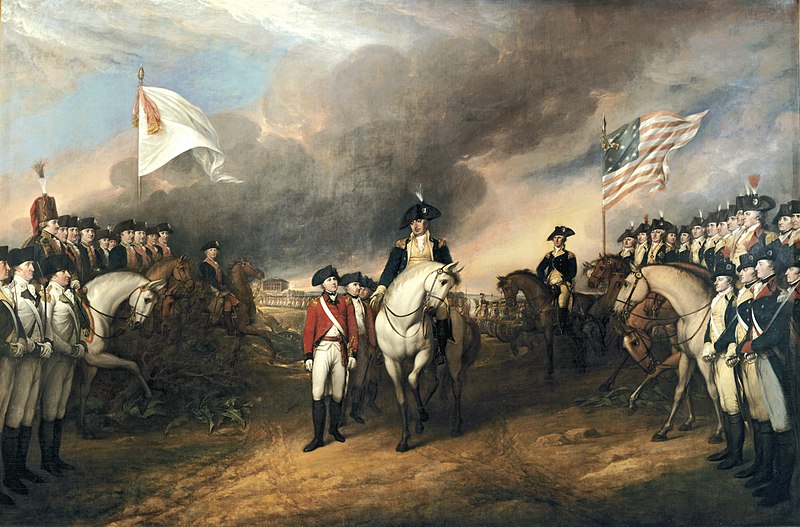George Washington and find out Lord Cornwallis' army was in Yorktown in the late summer of 1781. So the Patriots raced southward from New York to encounter with the French fleet under Admiral Comte de Grasse in Chesapeake Bay. Washington arrived just in time to surprise the British, who were waiting for reinforcements that never came from either General Henry Clinton or the British fleet.
The French fleet blocked the bay from Cornwallis while Washington blocked it in land. The British troops passed three weeks of without a way of escaping. Lord Cornwallis' finally surrendered on October 19, 1781 and this ended the plan of British in the south. The loyalist and Patriot forces in the south had fought a series of savage fights that left both sides bloodied.Cornwallis surrender his army of over 8,000 men. And send a white flag with a drummer boy to accept their defeat.The surrender occurred while the British band played The World Turned Upside Down, a tune that underscored the strange turn of events.This battle effectively ended the Revolutionary War with Great Britain, and helped the patriots to begin as a new Country.















